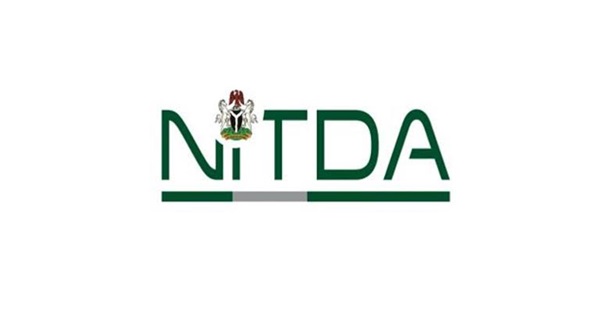
The National Information Technology Development Agency (NITDA) has reaffirmed its commitment to positioning Nigeria as a leading African digital hub through a balanced approach to regulation and industry-driven innovation.
The agency plans to invest heavily in cloud infrastructure, data classification and artificial intelligence (AI) applications, aligning with the federal government’s broader economic agenda.
This pledge was made by NITDA’s director-general, Kashifu Abdullahi during the Africa Hyperscalers Digital Infrastructure Outlook 2025 conference, where he shared insights into the agency’s strategies for leveraging technology to advance Nigeria’s digital transformation.
The event brought together industry experts from across Africa’s tech ecosystem to explore the continent’s role in the rapidly expanding AI-driven global infrastructure.
Speaking on NITDA’s regulatory framework, Abdullahi explained that the agency employs a two-pronged approach:
- Rule-based regulation, which sets clear industry compliance standards
- Non-rule-based regulation, which encourages innovation while setting industry benchmarks
“Before we regulate anything, we need to understand the landscape. We must be data-driven, intelligent, and dynamic because technology evolves rapidly,” Abdullahi stated. “Our regulatory framework must be agile to accommodate these changes.”
To reduce Nigeria’s reliance on physical data centres, NITDA introduced the Cloud First Policy in 2019, encouraging government agencies and private businesses to adopt cloud computing and software-as-a-service (SaaS) solutions. While the policy initially allowed waivers for businesses to use public cloud services, NITDA is now pushing for local data centres to scale up their capabilities.
A significant milestone in NITDA’s digital transformation strategy has been its engagement with global hyperscaler providers, including a collaboration with Google Cloud.
“The CEO of Google, Sundar Pichai, met with President Bola Ahmed Tinubu in Paris, where the president outlined his vision for a digitally enabled Nigeria,” Inuwa revealed. “President Tinubu believes technology can help achieve his eight-point agenda, which includes economic diversification, national security, food security, infrastructure development, education and healthcare.”
Google has since pledged to collaborate with local data centres to drive cloud adoption and establish a hyperscaler data centre in Nigeria, a move that will enhance the country’s digital infrastructure and attract more tech investments.
Abdullahi also announced that NITDA is finalising a framework for data classification, which will require certain categories of data to remain within Nigeria.
“Data is a critical national asset, and ensuring that sensitive data is stored locally will boost our digital sovereignty and encourage more cloud service providers to invest in Nigeria,” he said.
This framework aligns with Nigeria’s efforts to establish a secure and self-sufficient digital economy while also meeting global compliance standards.
On the role of AI in Nigeria’s digital future, Abdullahi emphasised that Africa should focus on AI applications rather than trying to build its large language models (LLMs).
“The real power of AI is in its application, not in building LLMs. We should prioritise AI-driven solutions in healthcare, agriculture and financial services, where they can have an immediate impact,” he asserted.
NITDA has identified three key areas where AI can transform governance and business operations, vis; automating processes to improve efficiency, enhancing regulatory oversight through data-driven decision-making and developing knowledge management systems to improve government service delivery.
In her opening remarks, co-founder of Telnet Nigeria Limited, Dr. Nadu Denloye highlighted Africa’s ongoing digital revolution, driven by expanding connectivity, growing adoption of cloud computing, increased investment in data centres, the rise of artificial intelligence and a tech-savvy, digital-native population.
Describing the event as a platform for solutions, Denloye emphasised the need for collaboration among stakeholders to overcome obstacles and harness opportunities.
“Africa’s digital transformation is unfolding at an unprecedented pace. By leveraging collective expertise and partnerships, we can unlock immense opportunities that will shape the future of the continent’s digital economy,” she said.
The conference also featured discussions from leading experts in Africa’s data centre and cloud computing ecosystem, including CEO of Open Access Data Centres and chairman, Africa Data Centres Association, Dr. Ayotunde Coker; CEO, Kasi Cloud, Johnson Agbogbua; Data Centres Global Sector Lead, International Finance Corporation, Obinna Isiadinso; Chief Operating Officer, HIS, Kazeem Oladepo and commercial director, Bayobab, Mrs. Abibat Kazeem.
NITDA’s ambitious strategy underscores Nigeria’s determination to become a key player in Africa’s digital economy. With cloud adoption, AI integration and data sovereignty at the heart of its policies, the agency is laying the groundwork for a tech-driven future.
As global hyperscalers, government agencies and private businesses align their efforts, Nigeria is well-positioned to drive digital growth, foster innovation, and enhance economic development in the years ahead.


